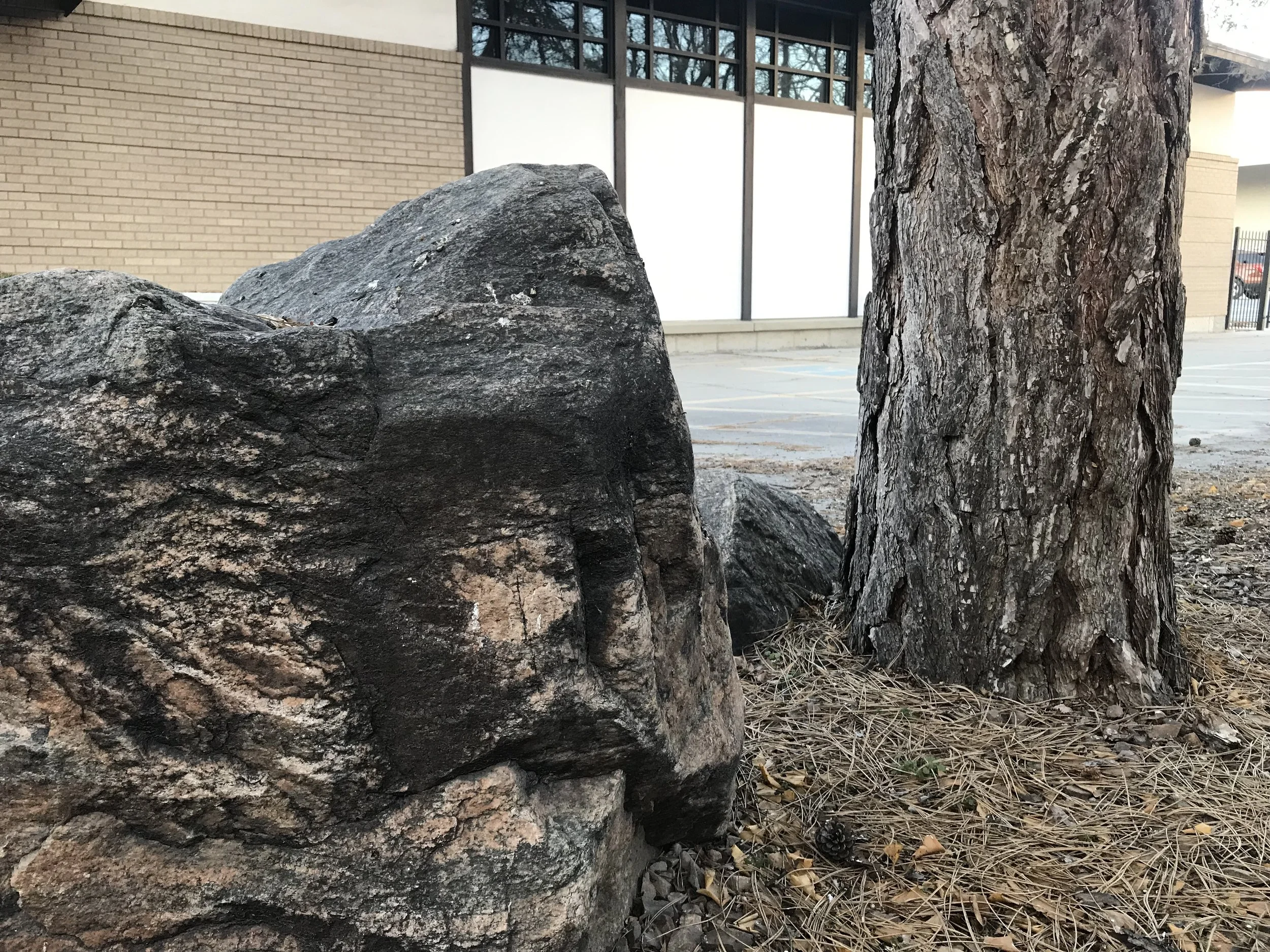Embrace the Tornado: Namo Amida Butsu
Rev. J.K. Hirano
Way of Life: Guided by the teaching of Shinran Shonin, we will listen to the compassionate calling of Amida Tathagata and recite the Nembutsu. While always reflecting on ourselves, amidst feelings of regret and joy, we shall live expressing gratitude without depending on petitionary prayer and superstition.
Kyosho:Essentials of Jodo Shinshu
On April 8th, we Japanese Buddhists celebrate Hanamatsuri (Flower festival) the birthday of Siddartha Gautama, Shakyamuni Buddha. Hanamatsuri translates as “flower festival”. This name is in reference to the story of the Buddha’s birth in Lumbini’s garden over 2500 years ago. It was said that the baby buddha after being placed upon the Earth by two dragons, took seven steps and as he walked, flowers blossomed out of his footsteps. To be honest, I have a hard time believing a baby could walk and talk at birth. Observing my daughters and now my grandson, I have seen that it takes a while for a baby to learn to walk and even their first steps are difficult, let alone seven steps and then speaking, “In the heavens above and the Earth below, I am the honored one.”
However, I can understand that this is a story. We human beings are story tellers. Everything we know are built upon stories. We create our own realities by the stories we tell ourselves. When you get to my age, I realize that when I look back on my life, I can’t be sure of what is real and true, beyond the stories I have told myself about my life. If I don’t even know what is true and real about my own life, it is impossible to think I know anyone else’s story or life. Even those closest to me, Carmela, my wife or my children are just stories of what I have told myself about them. Their true inner selves I will never know.
Even math and science are not necessarily true. It is dependent on the context, another story. Although, science is a pretty good predictor of what is real and not real. Science is made up of stories based upon what “experts” have told us is true. I enjoyed both the book and now the television series “The Three Body Problem” where they talk about science being “broken”. I believe that much of what this story is showing is how boundless, yet fragile our human egos are. We think the world is centered and revolves around us, because in these stories we tell ourselves, we are the hero, protagonist and even villain.
I am one story of my culture. Japanese American culture is a mish mash of Japanese tradition, superstition, Confucian thought, Buddhism, Christian and American tradition, and values. I would say it has taken about 800 years to develop this Japanese American culture I live and exist within. However, as a Jodo Shinshu Buddhist, this spiritual teaching has taught me that I am but a small piece of what we call the world or reality. I wrote about the book Fluke, I really like this quote and can relate it to my life.
I began to wonder whether the history of humanity is just an endless, but futile, struggle to impose order, certainty, and rationality onto a world defined by disorder, chance, and chaos. But I also began to flirt with an alluring thought: that we could find new meaning in that chaos, learning to celebrate a messy, uncertain reality, by accepting that we, and everything around us, are all just flukes, spit out by a universe that can’t be tamed.
Fluke: chance, chaos, and why everything we do matters, Brian Klaas
Over the past few years, I have been involved with training Jodo Shinshu priests in America. I can almost predict who will be successful or will fail as a priest based on one thing. Whether or not the individual understands and truly accepts this idea expressed by Brian Klaas. Which is to be grateful for all things and become humble rather than arrogant. The way I see it, is that life is chaotic. It is not a straight line from birth to death. Our life is like a tornado, yet we try to impose order, certainty and rationality to a reality that is in essence chaos. The ones that think they are the masters of their own ship and approach the world with arrogance will fail. If we understand this chaos, we can only approach and live in it with a deep sense of humility for this experience of life. The tornado cannot be known. Our teaching is not telling us, “This is the way.” It is saying, even if you do not know the way, you should be grateful for all of it, to embrace the tornado. Shakyamuni Buddha in saying he is the honored one, is not saying he is the only one or that he is better than anyone else, but that in this world, it is his story and whether it has a happy ending or not, he is grateful. This is spiritual freedom. Humility is the basis for Jodo Shinshu and should be for life. Let’s celebrate this at Hanamatsuri. Happy Hanamatsuri and Namo Amida Butsu.
Spiritual progress is when one becomes free not only of the knowledge which is inevitably from the past, but also from the need to know... and a desire to predict and control.
Ravi Ravindra
